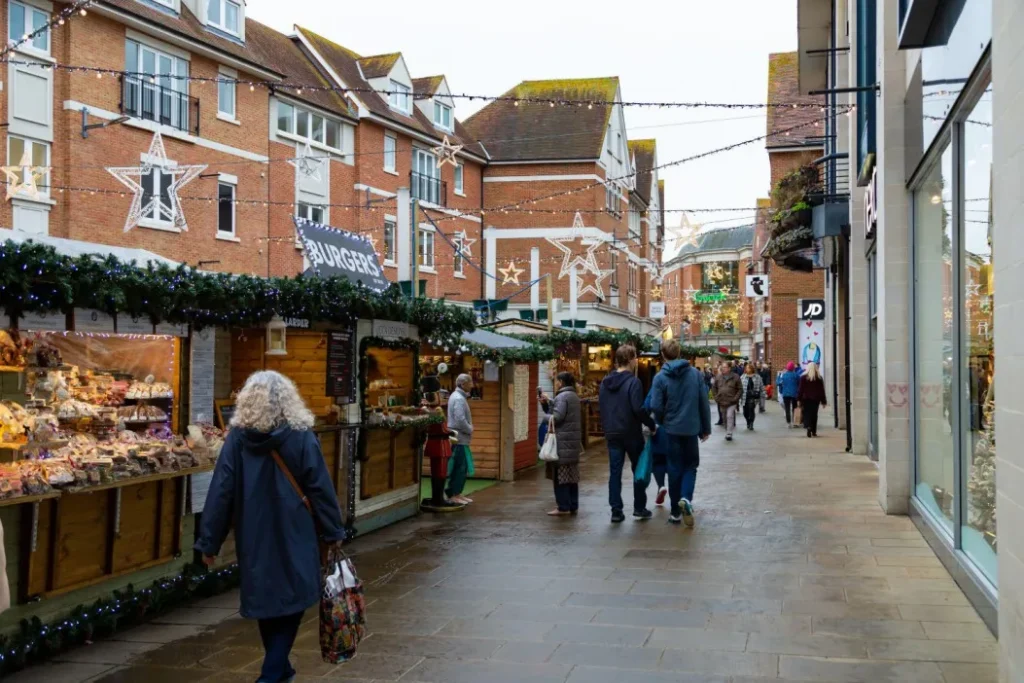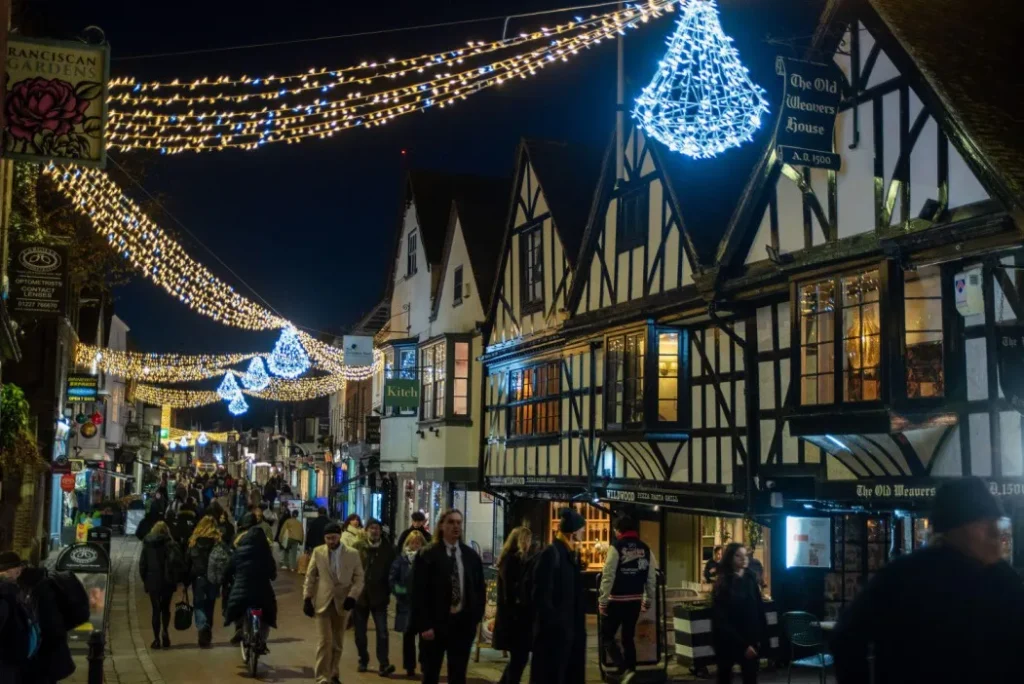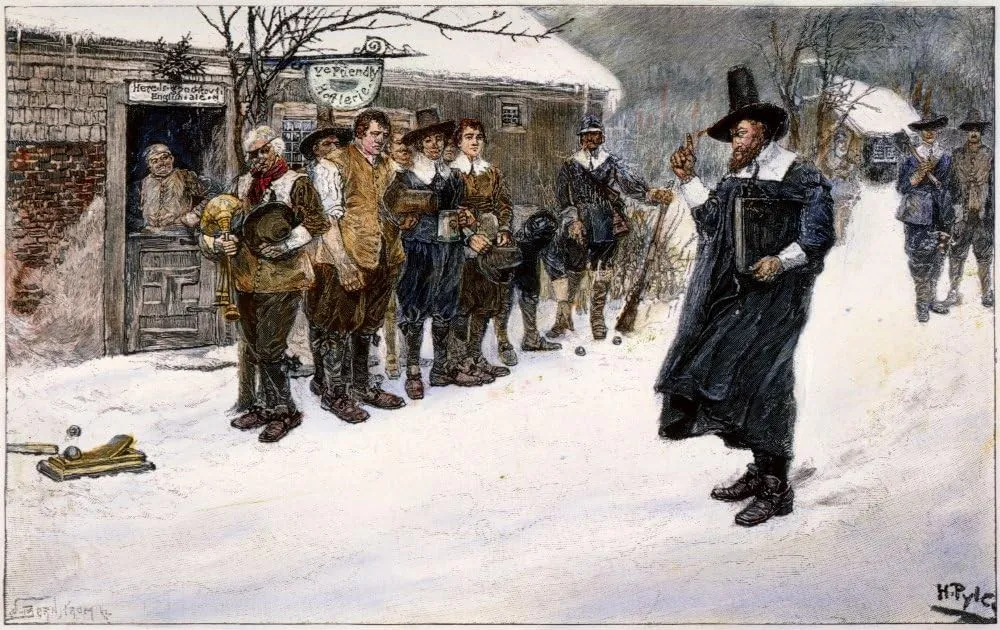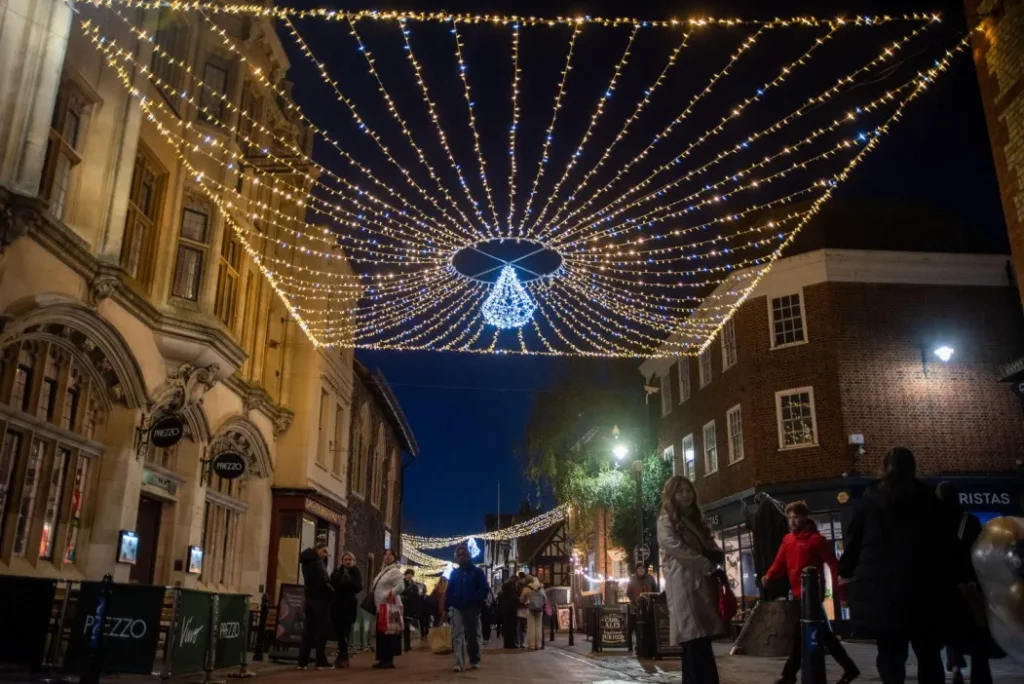Christmas was once banned in England – and it wasn’t due to a Grinch-like figure. For nearly 20 years in the 1640s, festive celebrations were illegal, and the holiday was virtually erased from the calendar.

The crackdown came under MP Oliver Cromwell and his Puritan supporters, who launched a strict ban on Christmas. They didn’t just frown upon holiday cheer; they completely outlawed it, from feasts and decorations to traditional celebrations.
In December 1643, a law was passed that required Christmas to be marked with “solemn humiliation” instead of joy. By 1644, the restrictions intensified, and Christmas was officially treated as any other day. Classic holiday treats, including mince pies and plum puddings, were banned.

As Historic England details, “Shops and markets were ordered to stay open on 25 December, and soldiers patrolled the streets of London, seizing any food being prepared for Christmas festivities.”
Enforcing the ban was far from easy. In Canterbury, when a shopkeeper refused to open on Christmas Day, locals protested in what became known as the Plum Pudding Riot. Furious crowds smashed windows, tore the mayor’s robes, and forced him to flee the city. This riot sparked protests across England, from London to Ipswich, and even sailors in Kent laid siege to ports in defiance.

Despite the unrest, Cromwell’s ban remained for years. Christmas would not be restored until 1660, when the monarchy returned and the Puritans lost power.
Although Cromwell’s attempt to cancel Christmas ultimately failed, his crackdown left a lasting impact. The Pilgrims, influenced by the Puritans, adopted a similar Christmas ban in America’s colonies. However, Dutch settlers in the U.S. celebrated Sinterklaas, a precursor to Santa Claus, helping to keep the holiday alive across the Atlantic.


As Santa made his way back to England, he eventually merged with Father Christmas, forming the jolly figure we know today. Without the protests sparked by the Plum Pudding Riot, Christmas traditions as we know them could have looked very different.
Today, Brits enjoy Christmas cheer in the country’s most festive cities, with plenty of holiday traditions to enjoy. For those looking to travel, the best Christmas markets in Europe provide the perfect festive escape.



